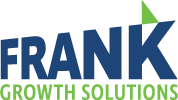If you’re not already using a cloud storage platform, I encourage you to read on and consider doing so.
The use of centralized cloud storage and its value and ease when it comes to managing board-related and other documents is important to consider. In this digital age, where convenience and accessibility are key, leveraging cloud storage solutions can significantly streamline operations and enhance collaboration within your board. Let’s look at the benefits of centralized cloud storage and how it can help your document management system.
Effortless Accessibility
One of the most significant advantages of centralized cloud storage is the ease of access it offers. With a secure cloud platform, your non-profit board members can access important documents from any location, at any time, and using any device with an internet connection. This eliminates the need for physical copies, reduces reliance on a single device, and enables real-time collaboration. Whether board members are attending meetings remotely or on-the-go, they can effortlessly view, edit, and share documents, fostering greater efficiency and productivity.
Enhanced Collaboration
Collaboration lies at the heart of effective board governance and organizational culture. Centralized cloud storage facilitates seamless collaboration by allowing multiple people to work on the same document simultaneously. With features like version control, document history, and commenting, your board and staff can maintain a streamlined workflow, ensure everyone is on the same page, and track changes made to documents. Board members and staff can even communicate directly within the cloud storage platform, reducing the need for lengthy email threads or offline discussions.
Document Security and Disaster Recovery 1
Nonprofit organizations deal with sensitive and confidential information that must be protected. Centralized cloud storage offers robust security measures, including encryption, multi-factor authentication, and access controls, ensuring that your documents remain secure from unauthorized access. Moreover, storing documents in the cloud provides an extra layer of disaster recovery. In the event of unforeseen circumstances, such as natural disasters or hardware failures, your valuable documents will remain safe and can be easily restored.
Cost-Effective Solution
Cloud storage reduces the need for physical storage space, such as filing cabinets or dedicated servers, reducing the associated costs. Rather than spending on hardware maintenance, infrastructure upgrades, and physical document management, cloud storage providers offer flexible pricing models, allowing you to scale your storage needs as your organization grows. Major providers such as Microsoft and Google and others offer special rates and packages for nonprofits and charities This cost-effectiveness makes the move to cloud storage very affordable and easier to adopt.
Integration and Automation
Many cloud storage platforms integrate seamlessly with other productivity tools, such as project management software, document editors, and communication platforms. This integration streamlines workflows, enabling your board and staff to access documents directly from their preferred applications, work collaboratively, and automate repetitive tasks. By reducing manual effort, you can focus on strategic decision-making and devote more time to driving the nonprofit’s mission forward.
Conclusion
Centralized cloud storage presents organizations with a solution for managing documents. The accessibility, collaboration features, enhanced security, cost-effectiveness, and integration capabilities offered by cloud storage platforms enables you to optimize your document management processes.
There you have it. I hope you are able to leverage this basic technology to ease the paperwork burden and work more collaboratively and seamlessly.
______________________________________________________________________________________________________________________________________
Full disclosure
I have used ChatGPT as a brainstorming tool in coming up with some of the content and ideas in this newsletter. This is new to me and I have mixed feelings. Although I think the content is great, very relevant and helped point me in the right direction, I wondered what your thoughts are around using this new technology. Feel free to email me to let me know.
1 Although the risk of data loss is usually not an issue as cloud platforms typically are more secure than on site servers, certain confidentiality concerns may exist. These relate to privacy acts, funders and personal information storage and other ‘industry specific’ regulations.
Thanks,
Frank



